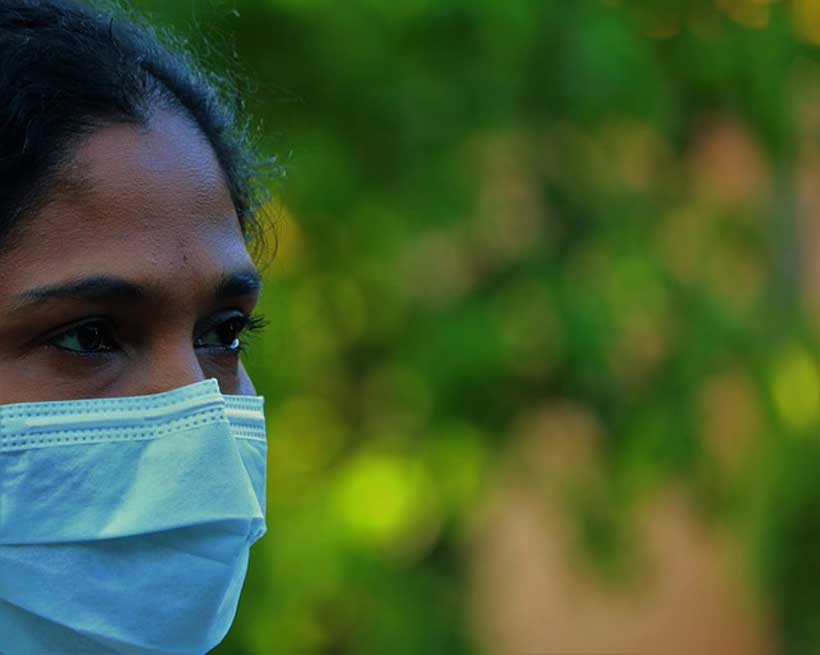On the 30th of January 2020, the world came to an end. A new infectious disease was declared a public health emergency of international concern by the World Health Organization. Some would argue that the world first ended on the 31st of December 2019, when the patients who first reported at hospitals in Wuhan with pneumonic symptoms led to the discovery of the novel coronavirus. The fires of the pandemic stealthily stole across the world exposing the fault lines of fragile healthcare systems and in the developed world, healthcare systems snapped like dry twigs. Mortality statistics jumped around the world, leapfrogging regions. At first, it seemed the pandemic had a preference for a certain class of people within demographics, however it quickly showed that it had many sides to its biological pattern. In no time, the pandemic had proven a virological affront on humanity and its civilizations.
Today, globalization has been rudely arrested in its frenzied manifestations in the global commerce. International conferences have been stalled, and virtual presence has increased. There is a temptation to think that humanity itself is going through the process of dematerialization that has taken over the sphere of its technologies. The face of the global economy has changed considerably, with capitalism suffering a significant blow in its pace. This is not because capitalism in itself is to blame, but prevailing Keynesian behavioral economics define the global economy today. Since the invisible hand in the markets follow the pattern of people’s actions and inaction, the global economy has refused to change, because people are unwilling to change.
The pandemic’s rage across the world has forced a roaring debate amongst libertarians, about government intervention and what it means for human liberty. The biopolitics of societal preservation is the prevailing discourse and this is informing the iron-fist policies of governments’ across the world in controlling the spread of the virus. The times require unconventional thinking and technological innovation more than ever, and more than before, government’s role in the polity should be emphasized, but defined. Governmental economic relief packages, especially in Africa could increase corruption as there are lower restraints to executive action in states across Africa. Therefore governments should focus on tax cuts and as never before, support technological innovation through beneficial policies, as this is one of the building blocks of the modern economy.
The structure of liberty in the minimal state is defined by the social contract, as the individual is seen as a party in a contractual agreement to trade some liberty for preservation. What this suggests is that with liberty comes great individual responsibility. Governments across Africa have succumbed to the socialist temptation of militarizing collective preservation internally. According to the BBC, the South African government deployed a large number of troops, the largest since the time of Apartheid. In Nigeria, it was the same response, with Nigeria recording deaths from its army’s brutal engagement with civilians. In Kenya, there has been several human rights issues arising from the security forces deployed to enforce curfews. The Daily Mail reported that a young boy was shot on the balcony of his parents’ house during the curfew in Kenya. The endangerment of liberty isn’t the solution to the surging rates of COVID 19 infection. Rather a humanistic approach should engage individual responsibility.
The social contract suggests that individual liberty should not be taken without negotiation. However democracies across the African continent are scarred by the decades of turbulent strong man regimes and therefore do not think much of individual liberty. There are lessons to come away with, in an Africa where a pandemic puts people at the crossroads between economic annihilation and government sponsored violence. What makes Africa very vulnerable to the ravaging throes of the pandemic, is that in pre-COVID 19 times, many economies across Africa were machines whose working parts were small businesses that struggled from day to day, and whose growth were stifled by repressive government policies inspired by too much governmental interest in the commerce.
Today lockdowns and curfews across the continent hold African economies by their tails. It is a showdown between the pandemic and decadent systems unchanging because many African governments attempt to control economic outcomes in their countries. They realize that holding the key to the economy is power, but they forget that as guardians of the polity, they already hold enough power. Attempting to hold any more power is to play God. The delusion that African governments have about their capacity to create prosperity and wealth for their citizens has become a hopeless one in the face of the current realities. It has become even more obvious that the undervalued private sector is the one to look to as the future of the African economy. The bigger picture especially in Africa is allowing more autonomy in the private sector. Africa will transition economically only when governments on the continent, step back from meddling with the economies of their countries. African people would become freer in their home countries if only they can have more economic liberty, and this would emancipate the markets, only then would prosperity be created.


